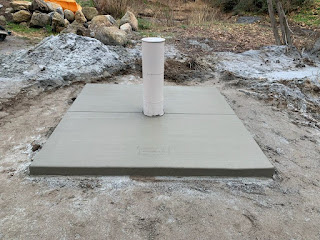What are the chances of drilling a dry well?
Fortunately, its quite uncommon to drill a dry well. Heritage Well Service has been in business for over 20 years and our owners are a second generation drilling family. All said and done our family has been in the drilling business for over 40 years, that’s a lot of holes in the ground! Annually we drill 60-70 wells a year and of those we have 1-2 wells per year that do not produce. It is much more common to drill a well that did not meet your production expectations than a completely dry hole.
During the estimating process we spend a significant amount of time researching our own records and those of property owners around you to help determine what method of drilling is best for your location, what depth will yield positive results and what formations we expect to encounter. All of this time spent researching gives us an informed opinion about what’s the best approach to drilling a well on your property. If we have doubts for any reason about the viability of a well on your property we will inform you before we provide a quote and suggest you reach out to a water survey company to provide another resource in the selection of your drilling site.
So what happens if you drill a well that does not meet your production expectations? If you are developing your lot in a rural area you will most likely be required to install a fire water storage tank for fire suppression as a part of your development process. This tank can be incorporated into your water system to act as a vessel to collect your well water and then a booster pump connected to this tank provides a constant source of water. If you do not have to install a fire water storage tank we can provide you quotes for a similar set-up for a storage tank and booster system that will also meet your needs. Generally, Southern California counties require a minimum flow rate of 1 gpm of constant flow in order to develop a lot. If you calculate that out on a daily basis, flowing into a water storage tank that’s 1440 gallons of water per day. As long as you are conservative and monitor your water use this is more than sufficient to supply a home.
Many people ask, “do I have to pay if you drill a dry well?” The simple answer is yes, you do have to pay. In well drilling we guarantee to drill you a hole as described in your contract to the depth in your contract. You will not find a driller in our area that will guarantee the quantity or quality of water you will find. The unfortunate truth is that it costs just about the same amount of money to drill a dry hole as it does one that produces water. When a dry hole happens a drilling company is still on the hook for the labor, fuel, casing, additives, water and tooling used to drill your well, this in turn makes the client responsible for payment per the contract. We wouldn’t be honest with you as potential client if we didn’t spend time informing you of the risks of drilling. The take-a-way from this is to spend time and effort on your site selection to put as much education and research into this spot as you can so that your chances of this happening are small.



Comments
Post a Comment